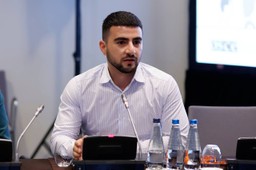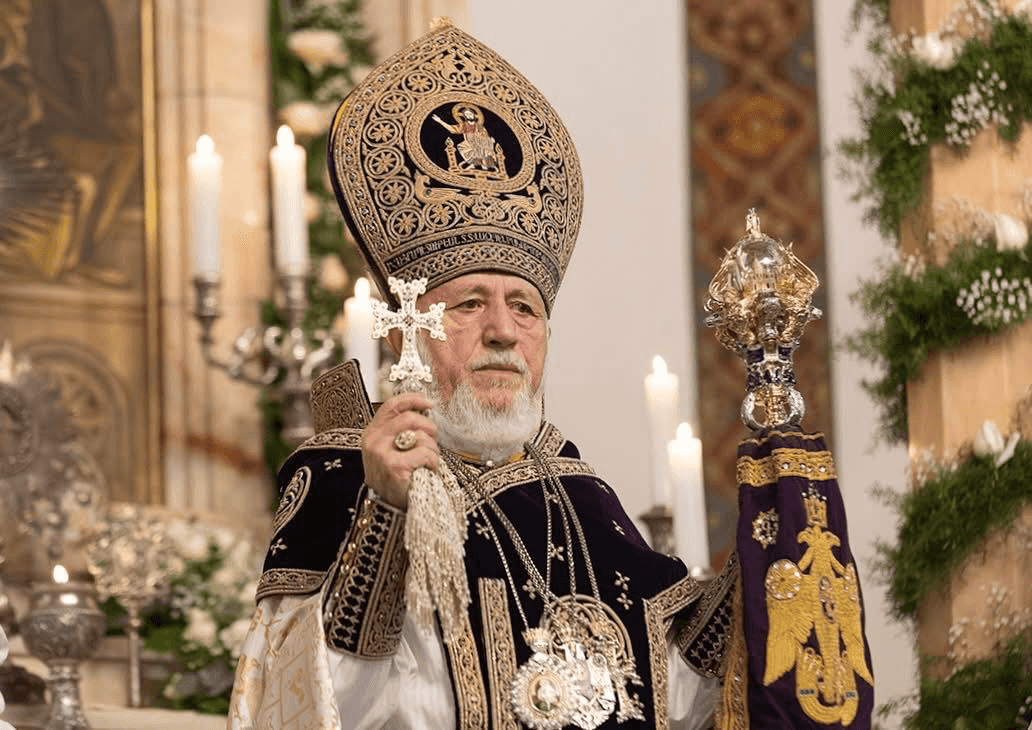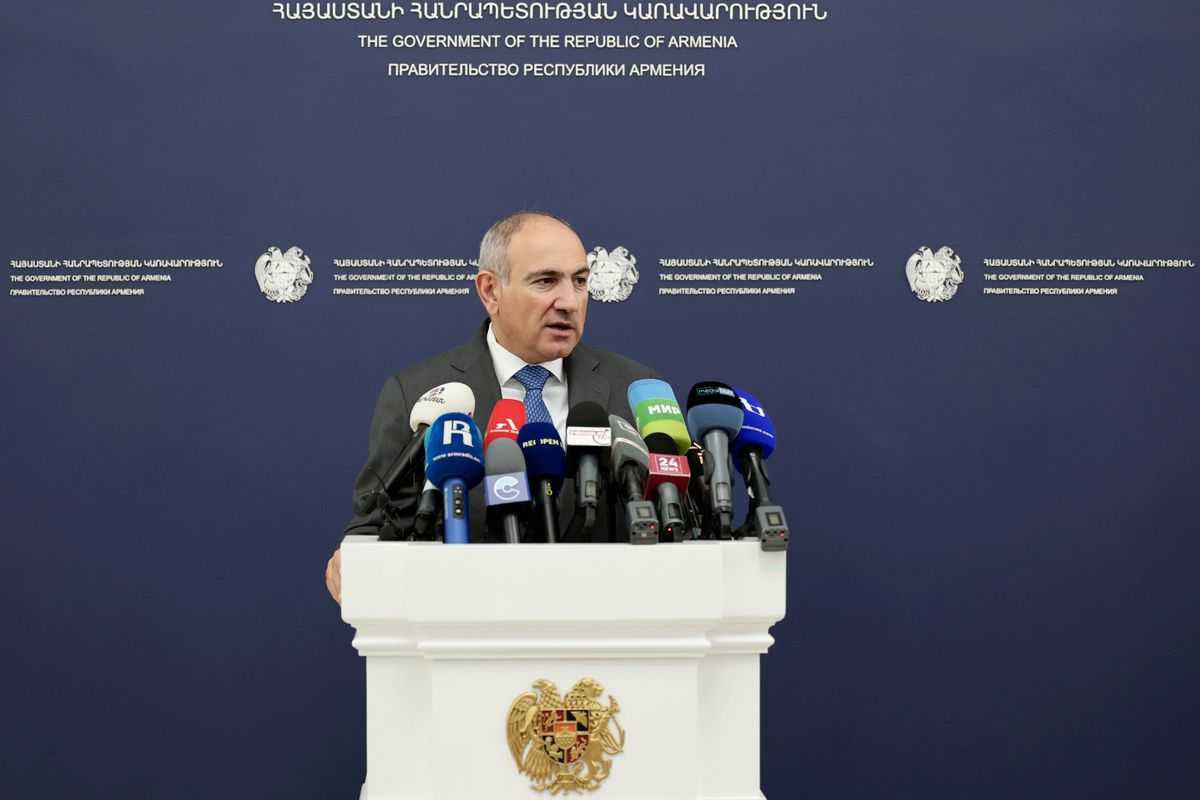Opinion | The personalisation of power in Armenia endangers democracy
Prime Minister Nikol Pashinyan’s focus on loyalty above all else risks turning Armenia’s democracy into a façade.

Armenian Prime Minister Nikol Pashinyan’s recent declaration — ‘The government is me, and whoever disagrees with my position, I will remove them’ — if not a careless remark, reveals a mindset that places personal authority above Armenia’s constitutional principle of collegial governance.
In Armenia’s parliamentary system, the government is defined as a collective body: the prime minister together with ministers, each responsible for their portfolios and collectively accountable to the parliament and the people. By equating himself with the government, Pashinyan hollowed out this concept of shared responsibility. Ministers are reduced to executors of his will rather than policymakers with their own mandates. This is a blow to participatory democracy, as individuals, the electorate, and their institutions cannot be considered in isolation from one another.
Armenia has made great progress since 2018, and if Pashinyan’s sentiment continues, these gains risk erosion.
A couple of hours after Pashinyan’s latest controversial statement, Liparit Drmeyan, head of the International Legal Affairs Office, was dismissed after publicly upholding an international arbitration ruling that contradicted Pashinyan’s position. Coming directly after Pashinyan’s declaration, the firing sent a chilling message that legal or professional judgement may not outweigh the leader’s opinion.

Regrettably, there are other signs that signal that this might not simply be rhetoric.
In late 2024, five senior officials, including Karen Andreasyan, the chair of the Supreme Judicial Council and a former justice minister, were forced to resign at Pashinyan’s request, reportedly via SMS. Freedom House’s Freedom in the World 2025 report noted that experts have argued the move violated constitutional safeguards and undermined judicial independence, showing how loyalty to the leader overrides institutional checks.
From institutions to personal rule
What makes Pashinyan’s statement so troubling is not only its content but also what it reveals about Armenia’s democratic trajectory. In democratic theory, legitimacy is supposed to flow from institutions, laws, and collective responsibility. The government exists to translate the will of the electorate into policy through transparent and accountable institutions.
When a leader insists that he alone embodies the government, he shifts legitimacy from institutions and ministers to himself alone. This is the personalisation of power: a move away from rules and toward will, from institutions to an individual. What derives from Pashinyan’s statement is that behind closed doors disagreement is not treated as part of healthy pluralism but as disloyalty. Decision-making stops being a collective process, but the will of one person and a test of loyalty to the prime minister.
This is also the essence of democratic backsliding. As Steven Levitsky and Daniel Ziblatt wrote in their seminal text How Democracies Die, democracies rarely collapse overnight. Instead, they erode slowly as leaders chip away at the institutional foundations that constrain them. It can look like the executive hollowing out collegiality, then the judiciary, legislature, and independent bodies. By the time the process matures, little remains beyond the authority of the leader. Another sign of this in Armenia is Pashinyan’s inclination to appoint loyalists to many important positions in the government or even in supposedly independent bodies.
The ministers in a parliamentary system are meant to bring expertise, independent judgement, and political accountability within their portfolios. The prime minister coordinates and leads. This system ensures a diversity of views within government, safeguards against mistakes, and creates an internal check on arbitrary decision-making. When the prime minister claims to be the government, he strips this away, turning the cabinet from a collective decision-making body into an extension of one person’s will. The questions I ask myself and bother me the most are: What type of citizens are formed under such a rule? What type of thinking develops when the prime minister publicly shares such sentiments?
Given Armenia’s precarious security environment, the temptation to concentrate power is understandable, but it is precisely in such moments that the resilience of democratic institutions becomes most vital.
Geopolitical contradictions
These dynamics have unfolded months after Armenia officially announced its EU aspirations and deepened its ties with the US, processes which demand strong, independent institutions. Pashinyan’s rhetoric and actions create a striking contradiction where abroad Armenia is perceived as a reforming democracy, while at home the Pashinyan demonstrates a centralisation of power that weakens the case for integration.
Democracy is important for Armenia not only as a value and a method — since the 2020 Nagorno Karabakh War, democracy also has strategic and security significance. Armenia’s Western turn is premised on the very values that a centralisation of power could undermine. If democratic institutions are slowly gutted at home, then integration becomes a purely geopolitical calculation rather than a genuine alignment of values.
It is true that Pashinyan himself is the single most popular public figure in the Armenian political atlas, and that opposition forces are either anti-democratic, fragmented, or unpopular. However, Armenians did not elect one man to embody the government. They elected and were promised a system of collective governance, bound by law and accountable to citizens.
Silencing diversity of opinion inside government signals fragility. A system built on one person’s authority is only as stable as that individual’s political standing. Once cracks appear, the absence of strong institutions can turn disagreements into crises, something that Armenian democracy cannot withstand anymore.
Pashinyan frequently points to economic growth and international agreements as evidence of progress. But prosperity built on weakened institutions is fragile, and no long-term stability is guaranteed. True prosperity and the rule of law require predictability, fairness, and the confidence of citizens that their government serves the law and not just the leader.
Armenia’s civil society should demand meaningful participation in the policy-making process and a renewed energy in reform processes, while international organisations and foreign partners should support Armenia in this process through funding and capacity building. The Armenian public should demand leaders who respect the constitution, embrace collective governance, and understand that true prosperity requires accountability, pluralism, and the rule of law.
Armenia’s democratic future depends not on one leader but on resilient institutions. If Pashinyan continues to equate himself with the government, sack those that have differing views, or continues valuing loyalism over professionalism, Armenia risks reducing democracy to a façade.
This article was translated into Russian and republished by our partner Jnews.










